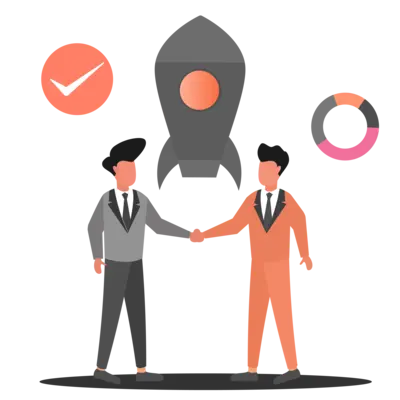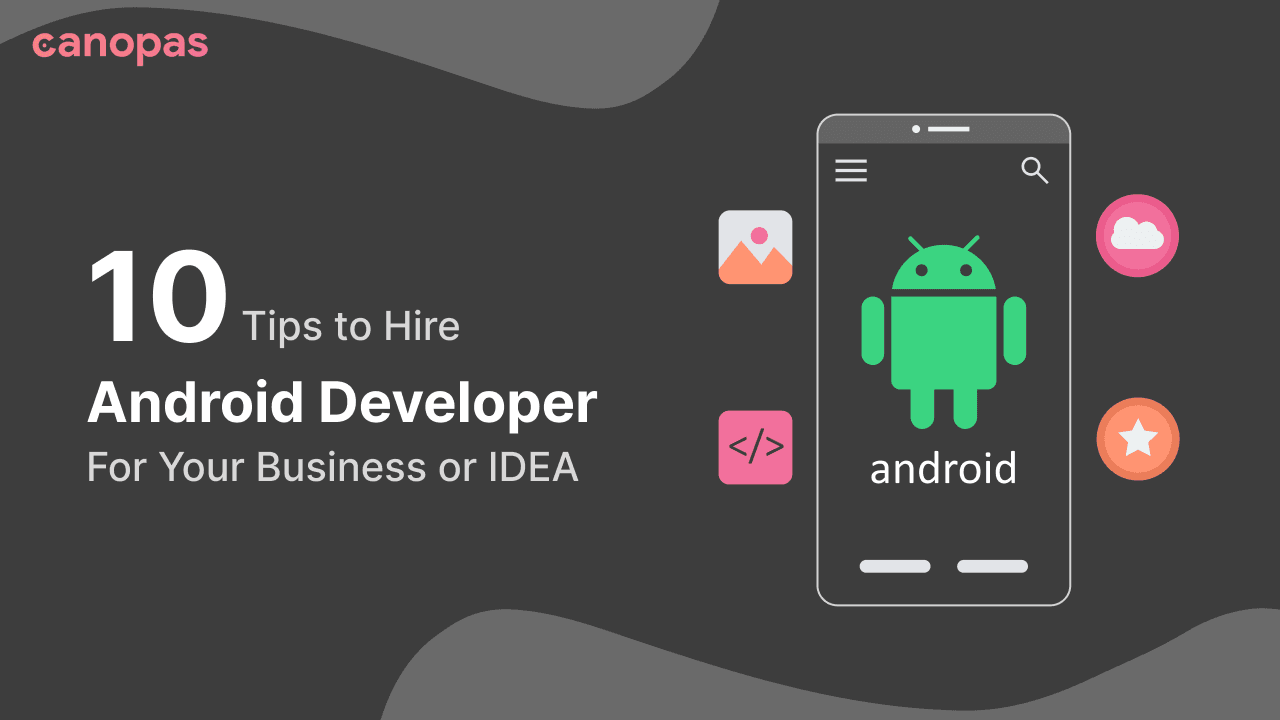
10 Tips to Hire Android Developer For Your Business or IDEA
How to Hire An Android App Developer? — Introduction
Ever had a brilliant app idea but felt lost trying to bring it to life?
You're not alone.
In a world where Android apps rule, finding the perfect developer can feel like searching for a needle in a digital haystack.
But fear not!
The right developer is out there, waiting to turn your vision into the next big app sensation.
The road to creating a successful Android app begins long before the first line of code is written; it starts with hiring the right developer.
Finding an Android developer might seem easy at first. After all, with the increasing number of developers and agencies available, there's no shortage of talent.
But the real challenge lies in finding a developer who not only possesses the technical skills but also aligns with your vision, understands your business nuances, and can translate your ideas into a functional and user-friendly app.
It's not just about hiring someone to do a job; it's about partnering with an expert who will become an integral part of your business's digital journey.
Whether you're a startup genius, a business maverick, or just someone with a fantastic idea, these 10 essential tips ensure you hire the best Android developer for your business or idea, setting a strong foundation for your app's success.
Ready to embark on this journey? Let’s dive right in!
Understanding Your Needs
Before you even start sifting through portfolios or conducting interviews, it's essential to have a clear roadmap of what you want.
Understanding your needs isn't just about what your app does, but it's about the impact you want it to make and the experience you want to deliver.
- Define the Core Purpose: What problem does your app solve?
Whether it's streamlining an e-commerce shopping experience or offering guided meditation sessions, your app should have a distinct purpose that caters to a specific audience.
- Feature List: Draft a preliminary list of features you envision for your app.
Do you want in-app purchases?
Push notifications?
Social media integration?
This doesn’t have to be exhaustive, but it gives potential developers a clearer picture of your expectations.
- Sketch or Mockup: Even if you're not artistically inclined, rough sketches or mockups of your app's layout can be incredibly useful.
Tools like Balsamiq or Figma can help you visualize basic interfaces. It not only provides a visual guide but also ensures you and your developer are on the same page from the get-go.
- User Experience (UX) Goals: What kind of journey do you want your users to have?
Is it a quick, efficient experience or a leisurely, explorative one?
Setting UX goals helps developers prioritize features and design elements accordingly.
- Budget Constraints: Having a ballpark budget in mind can help you align expectations with potential developers.
It ensures you’re looking at candidates or agencies within your spending limits, preventing potential overruns later.
In short, the more homework you do upfront, the smoother the hiring process will be. It reduces misunderstandings, sets clear expectations, and ensures that your vision is effectively translated into a tangible product.
Look for Experience
In the realm of app development, experience often equates to expertise. While fresh talent can bring innovative ideas, seasoned developers have the advantage of hindsight, having navigated the challenges and intricacies of numerous projects.
Here's why and how to prioritize experience in your search for an Android developer.
- Portfolio Perusal: Before diving into discussions, always ask for a developer's portfolio. Look for diversity in projects, attention to detail, and, most importantly, alignment with the kind of app you're aiming to create. Does their design aesthetic match your vision? How about the functionality and user experience?
- Success Stories: It's not just about the number of apps but their success. How have their past apps performed in the market? Look for user reviews, download statistics, and any awards or recognitions. This can give you insight into the developer's consistency and dedication.
- Adherence to Deadlines: While it might be challenging to gauge this from a portfolio alone, during initial discussions, ask about their usual timelines, any challenges they've faced, and how they overcame them. An experienced developer will have stories of unforeseen obstacles and their solutions.
- Problem-solving Prowess: With experience comes the ability to anticipate and mitigate challenges. Whether it's integrating a tricky API or optimizing for a specific Android version, a seasoned developer can often help you overcome difficult challenges.
Remember, experience isn’t just about the number of years in the industry but the quality, diversity, and relevance of the projects undertaken.
It's about finding a developer who can bring your vision to life, leveraging their expertise and insights from past ventures.
Technical Proficiency and Scalability
When it comes to Android app development, a strong foundation in certain technical skills is non-negotiable. It’s the engine behind the aesthetic, the nuts, and bolts of your app.
Here are some of the must-have skills to look for when you're hiring an Android developer.
- Mastery of Languages: An adept Android developer should be well-versed in Java and Kotlin, the two primary languages for Android app development. While Java has been around for longer, Kotlin is becoming increasingly popular for its concise and expressive syntax.
- Familiarity with Android SDK: The Software Development Kit (SDK) is a set of tools essential for building Android applications. A developer's proficiency with the Android SDK can often determine the speed and efficiency of the development process.
- Knowledge of APIs: If your app requires data exchanges over the internet, like fetching weather information or integrating with social media, a developer's ability to work with APIs (Application Programming Interfaces) is crucial.
- Experience with Android Studio: This is Android's official Integrated Development Environment (IDE). A developer should be comfortable using Android Studio for coding, debugging, and testing.
- Up-to-date with Trends: The tech world is dynamic. An excellent developer keeps abreast of the latest Android updates, design trends, and user behavior insights. This ensures your app feels modern and caters to current user expectations.
- Understanding of Material Design: Google’s design philosophy for Android, Material Design, focuses on creating intuitive and engaging user interfaces. Knowledge of its principles is vital for ensuring your app aligns with established Android UI/UX norms.
- Emphasis on Scalability: In the ever-evolving digital landscape, an app shouldn't just meet current needs but should also be capable of handling future growth. Whether it's an influx of users, the addition of new features, or integration with other systems, a proficient developer designs apps with scalability in mind.
A developer aware of scalability ensures that the app's infrastructure can handle more users, increased data, or higher transaction volumes without compromising performance.
Writing clean, modular, and maintainable code is the hallmark of a developer who prioritizes scalability. It means that as your business or idea grows, adding new features or making changes becomes a smoother process without overhauling the entire app.
In essence, technical proficiency and scalability are the bedrock of effective app development.
Including scalability in your technical checklist ensures that your app remains agile, adaptive, and efficient, no matter how your business evolves in the future.
While passion and creativity are essential, it's the technical expertise that turns an idea into a functioning, efficient, and user-friendly app.
Make sure you quiz potential candidates or agencies about their technical backgrounds and ask for examples of their work that demonstrate these skills.
To learn more about our technical proficiency, check out our GitHub or Blog.
Communication Skills
Beyond the technical domain, one often overlooked yet crucial aspect of hiring an Android developer is their ability to communicate effectively.
Building an app is a collaborative effort, and clear communication is the bridge that ensures your vision comes to fruition.
Six things to remember while looking for a developer with excellent communication skills.
- Clarity in Expression: Can the developer explain complex technical concepts in simple terms? This is crucial for ensuring you understand the development process, potential challenges, and solutions proposed.
- Active Listening: It's essential that the developer listens to and comprehends your requirements, feedback, and concerns. Active listening prevents misunderstandings and ensures that both parties are aligned in their goals.
- Regular Updates: An ideal developer keeps you in the loop with consistent progress updates. This transparency allows you to track the project's trajectory and make timely interventions if needed.
- Responsiveness: How quickly does the developer or their agency respond to your queries or concerns? Prompt communication can be a strong indicator of their commitment and professionalism.
- Feedback Receptiveness: While a developer brings technical expertise to the table, they must remain open to your feedback. A collaborative spirit ensures that the final product aligns closely with your vision while maintaining technical robustness.
- Tools and Platforms: Familiarize yourself with the communication tools your developer uses, be it Slack, Trello, Jira, or email. Knowing the primary channels of communication ensures a smooth flow of information.
In the end, building an app is as much about partnership as it is about coding. A developer with strong communication skills ensures that the journey from concept to launch is smooth, collaborative, and transparent.
Check Reviews and Testimonials
In today's digital age, online reviews and testimonials serve as invaluable resources for gauging the reliability, expertise, and reputation of an Android developer or agency.
Just like one would check reviews before purchasing a product, due diligence is essential when hiring someone to bring your app vision to life.
Here are some of the things you can check while evaluating reviews of the Android developer or agency.
- Genuine Feedback: Reviews often provide an unfiltered perspective of past clients. Look out for detailed reviews that touch upon the developer's technical expertise, communication style, adherence to deadlines, and overall project management.
- Patterns in Feedback: While one-off negative reviews can sometimes be anomalies, patterns in feedback are telling. For instance, if multiple clients mention poor communication or frequent delays, it might be a red flag.
- Third-party Review Platforms: While testimonials on a developer's website are often positive, third-party platforms like Clutch, Glassdoor, or even Google reviews can provide a broader perspective. They offer a more balanced overview of client experiences.
- Case Studies and Success Stories: Some developers or agencies showcase detailed case studies on their website. These can be invaluable as they not only highlight successes but often delve into challenges faced and solutions implemented.
- Reach Out to Past Clients: If possible, consider reaching out to a few past clients directly. Direct conversations can provide deeper insights about their personal experiences to give you a clearer picture of what to expect.
- Beware of Fake Reviews: While online reviews are useful, it's essential to be discerning. If reviews seem overly generic, overly positive without specific details, or all posted around the same time, they might not be genuine.
In conclusion, reviews and testimonials are windows into a developer's professionalism, expertise, and reliability.
They are the community's voice and often reveal what a resume or portfolio might not. Taking the time to research and understand past client experiences can be pivotal in ensuring a successful partnership.
Flexible Hiring Models
When you're in the process of hiring an Android developer, it's essential to find a model that aligns with your project's scale, budget, and timeline.
A one-size-fits-all approach might not always be the best fit. Therefore, understanding and negotiating a hiring model tailored to your needs can make a world of difference in the development journey.
Consider these six tips when you're not sure whom to hire between an Android developer and a Software Agency.
- Freelancer vs. Agency: While freelancers might be suitable for short-term projects or tasks with a tight budget, agencies often provide the advantage of a comprehensive team, ensuring various aspects of development, from design to testing, are covered.
- Hourly Rate vs. Fixed Price: An hourly rate can be ideal for projects where the scope isn't entirely defined, and flexibility is required. On the other hand, a fixed price might be better suited for projects with a clearly outlined scope to prevent budget overruns.
- Dedicated Team Model: For long-term projects or continuous development, hiring a dedicated team ensures that you have consistent resources focused solely on your project. This model fosters deep understanding and commitment from the developer's side.
- Hybrid Model: Sometimes, a combination of different hiring models might be the most efficient. For instance, you might hire a freelancer for initial design and an agency for development and post-launch support.
- Trial Periods: Before fully committing, consider negotiating a trial period. This allows you to gauge the developer's skills, work ethic, and compatibility with your project without long-term commitments. At Canopas, We offer a 100% MONEY BACK GUARANTEE FOR 14 DAYS if you don't like our work. No questions asked.
- Transparent Contractual Agreements: Regardless of the hiring model chosen, ensure that contractual terms are clear. This includes payment terms, deliverables, intellectual property rights, and other essential clauses that protect both parties.
In conclusion, a flexible hiring model doesn't just consider the present but also anticipates potential future needs and changes.
By understanding and negotiating the terms upfront, you set the stage for a smoother, more efficient development process tailored precisely to your needs.
Ask About Development Tools and Methodologies
The tools and methodologies an Android developer adopts can significantly influence the efficiency, quality, and timeline of your app development project.
These are not just technical jargon but foundational elements that streamline the development process and ensure the delivery of a robust, high-quality app.
- Integrated Development Environments (IDEs): Inquire about the IDEs they are proficient in. For Android development, Android Studio is a leading choice, but understanding their mastery over it or other environments can give insights into their technical depth.
- Version Control: A professional developer always uses version control systems like Git. This not only tracks changes and facilitates collaboration but also acts as a safety net, allowing developers to revert to previous versions if necessary.
- Agile, Scrum, or Waterfall: These are methodologies that dictate how a project progresses. For instance, Agile promotes iterative development and frequent feedback, while Waterfall is a more linear, phase-based approach. Understanding these methodologies helps in aligning expectations and timelines.
- Testing Tools and Frameworks: Testing is paramount in app development. Ask about tools like Espresso or Robolectric, and their strategies for unit tests, integration tests, and UI tests to ensure the app's reliability and performance.
- Continuous Integration and Continuous Deployment (CI/CD): CI/CD practices mean the developer values frequent, automated deployments, ensuring that the app is always in a releasable state. Tools like GitHub, GitLab, Jenkins, or CircleCI help streamline this process.
- Documentation Practices: A good developer understands the importance of clear documentation. Whether it's for code, API integrations, or user manuals, comprehensive documentation ensures that every stakeholder, from fellow developers to end-users, can understand and utilize the app effectively.
The tools and methodologies a developer employs are a testament to their commitment to quality, efficiency, and collaboration.
By understanding and discussing these elements upfront, you ensure a transparent, informed, and smooth development journey for your Android app.
Attention to UI/UX
An app's success is not just dictated by its functionality but also by the user experience (UX) it offers and the user interface (UI) that delivers it.
A great Android developer should possess not only technical prowess but also a keen eye for design and user-centric thinking.
Here's why attention to UI/UX is non-negotiable.
- First Impressions Matter: The UI is the first thing users notice when they launch an app. A clean, intuitive, and visually appealing interface can significantly boost user retention and engagement.
- User-Centered Design: The developer must understand and value the principles of user-centered design. This ensures that the app is designed with the end-user in mind, making it more intuitive and satisfying to use.
- Consistency Across Devices: Android operates across a myriad of devices with different screen sizes and resolutions. A developer attentive to UI/UX will ensure a consistent look and feel across all these devices, enhancing user satisfaction.
- Feedback Loops: A well-designed app provides feedback to users, whether it's a loading spinner, a success notification, or an error message. This keeps users informed and engaged.
- Smooth Navigation: The flow and navigation of an app play a pivotal role in UX. It should be logical, seamless, and should require minimal clicks or swipes to get from one point to another.
- Accessibility: With a growing emphasis on inclusive design, it's essential that the app is accessible to everyone, including users with disabilities. Features like voice-over, easy font readability, and contrasting colors can make an app more inclusive.
- Regular Testing and Iteration: UI/UX design isn't a one-off task. It requires regular testing with real users and iterations based on feedback to continuously refine and enhance the experience.
While the backend development ensures an app's functionality, it's the UI/UX that directly impacts user satisfaction and retention.
Investing in a developer or team that values and excels in this domain can be the difference between an app that's just functional and one that's truly loved by its users.
Post-Development Support
The journey of an app doesn’t end once it’s launched on the Play Store. In fact, post-launch can be a critical period, with user feedback rolling in, occasional bugs surfacing, and the need for updates and improvements. This is where post-development support becomes essential.
Some of the things to consider while evaluating post-development support.
- Maintenance and Bug Fixes: Even the most thoroughly tested apps can exhibit unforeseen issues in the real world. It's crucial to have a developer who's committed to regular maintenance and timely bug fixes, ensuring a seamless user experience.
- Updates in Line with OS Changes: With Android frequently rolling out new versions and updates, your app needs to stay compatible. The developer should be prepared to make necessary adjustments to ensure your app functions smoothly with each Android update.
- Feature Additions: As your user base grows and feedback pours in, you may want to introduce new features or refine existing ones. Having a developer who's on board for future improvements is invaluable.
- Performance Monitoring: Post-launch, monitoring your app's performance in terms of speed, user engagement, and crash reports is vital. Choose a developer who can provide insights and solutions based on these metrics.
- User Feedback Incorporation: A developer committed to post-development support will pay close attention to user reviews and feedback, using them as a roadmap for further refinement and improvement.
- Training and Documentation: If you have an in-house team that will take over post-launch, ensure the developer provides comprehensive documentation and, if necessary, training sessions. This ensures smooth transitions and ongoing app management.
An app's success isn't just about its initial development but its evolution and adaptability.
Opting for a developer or agency that offers robust post-development support ensures that your app remains dynamic, user-friendly, and relevant in the ever-evolving digital ecosystem. At Canopas, we offer FREE post-development support ranging from 1 Month to 6 Months based on the project size.
Conclusion
Choosing the right Android developer is akin to laying the cornerstone for your app's success.
By ensuring technical proficiency, cultural compatibility, adherence to best practices, and a keen eye for design, you set the stage for an application that not only functions seamlessly but resonates deeply with its users.
Embarking on the app development journey can be both exciting and daunting. But with the right guidance, due diligence, and focus on the essential aspects as outlined above, you can turn this journey into a rewarding venture.
Are you ready to bring your app idea to life with a team that prioritizes every facet of development, from code to user experience?
Contact us today and let's transform your vision into a tangible, successful Android application.


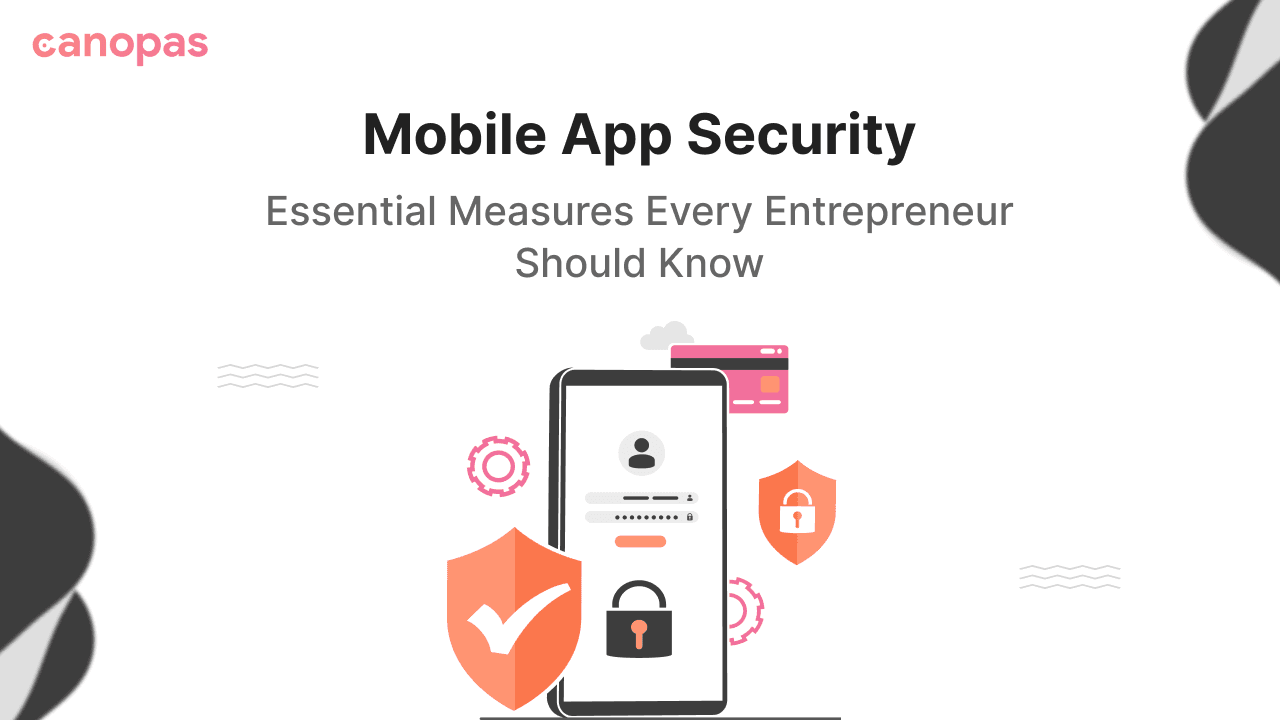
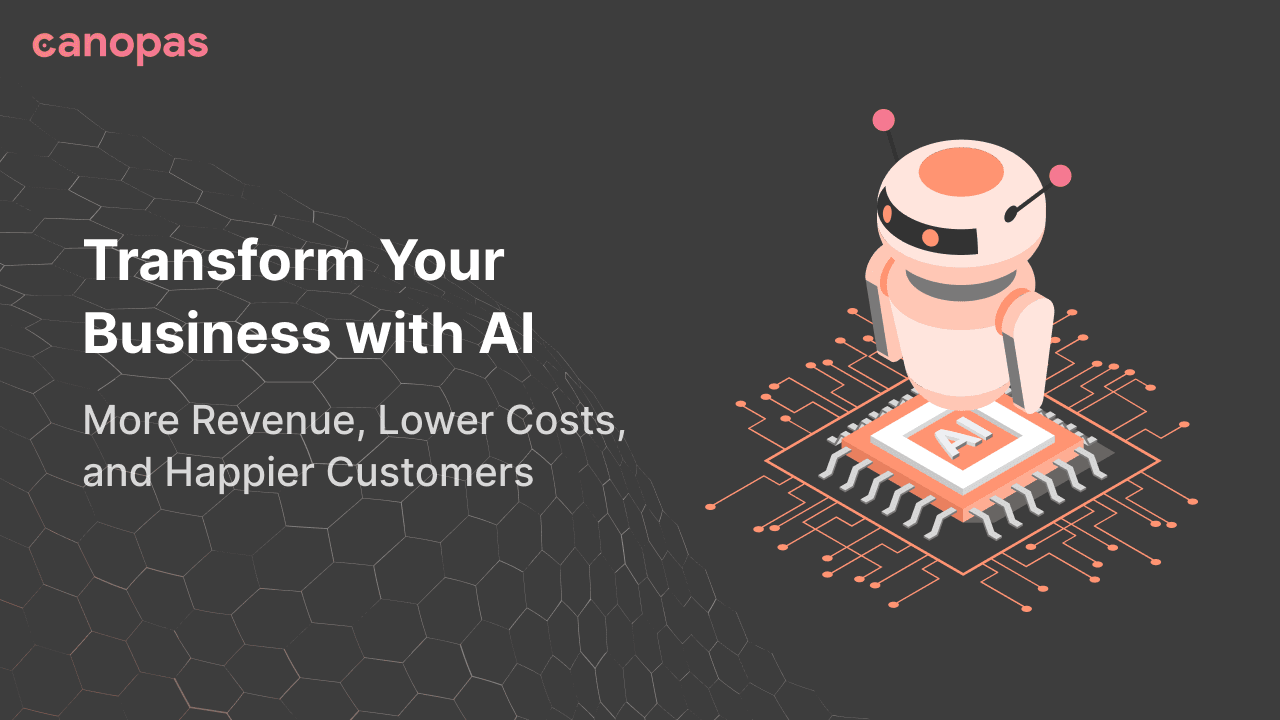
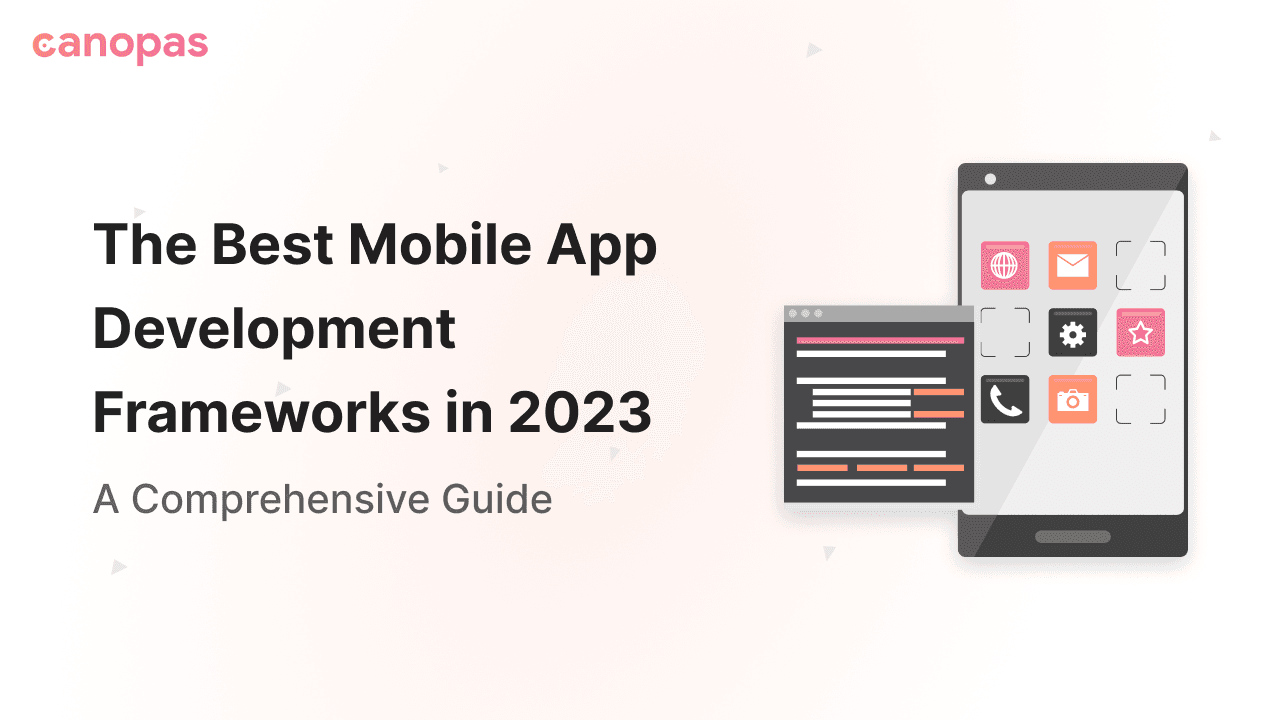



Let's Work Together
Not sure where to start? We also offer code and architecture reviews, strategic planning, and more.
